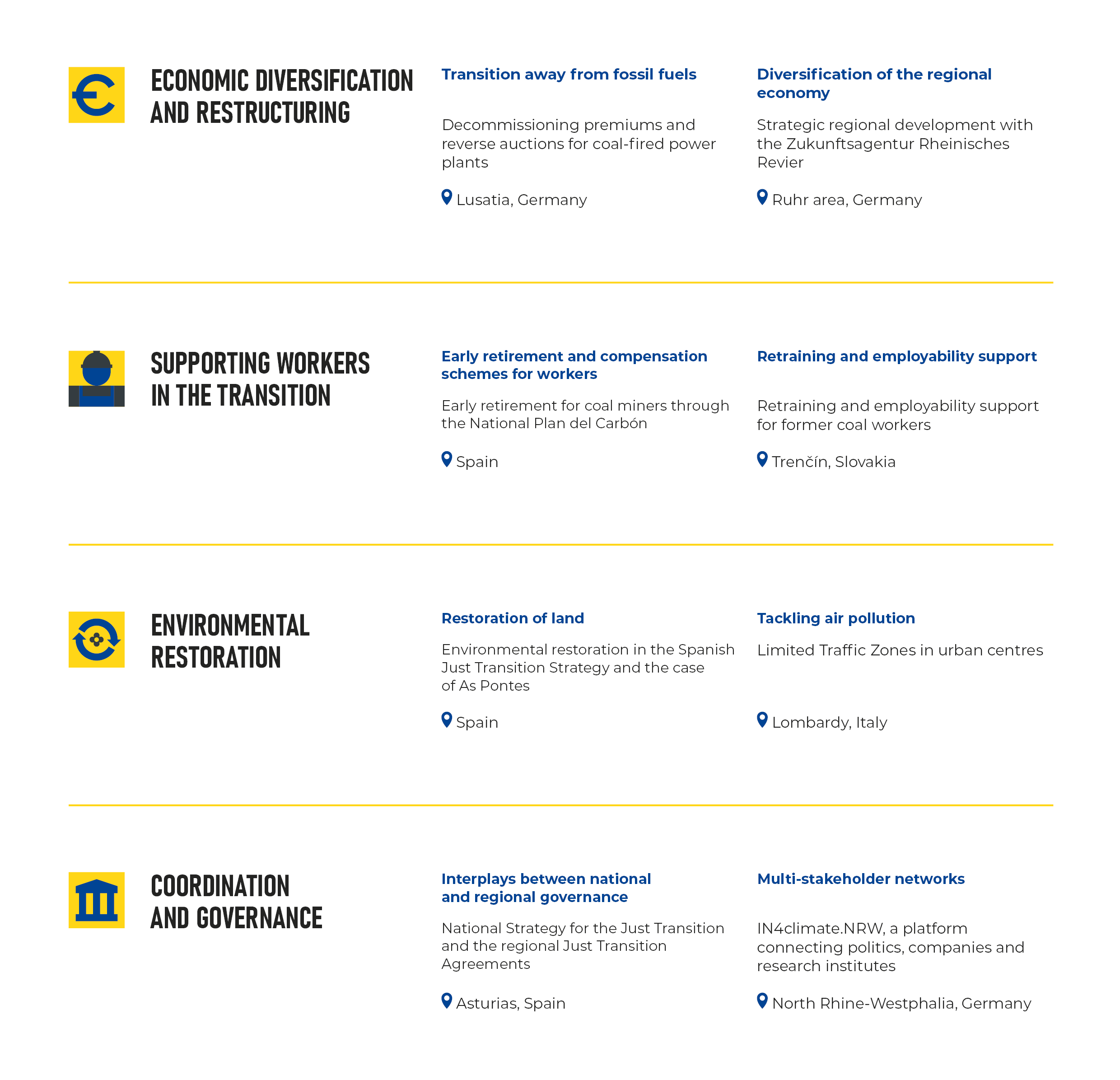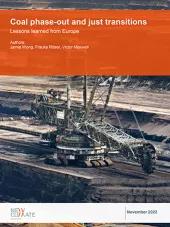The EU’s concept of a just transition revolves around a territorial approach considerably involving regions. Part of the EU’s Green Deal, the Just Transition Mechanism intends to support EU regions that are the most affected by the transition to a climate neutral economy, following the imperative of leaving no one behind. Subnational authorities thus have a key role to play in addressing the socioeconomic impacts of the transition, as they can tailor climate policies to the local context.
In this paper, we examine how European regions have taken the just transition from a concept to implementation through a set of policies. The selection of short case studies aims to guide subnational decisionmakers in the design of their just transition policies based on European evidence. Policies cover four main areas that are recurrent in European just transition frameworks: economic diversification and restructuring, worker support in the transition, environmental restoration, and coordination and governance.

Based on the case studies, we identify key takeaways per area of focus.
- Economic Restructuring
Strategic, region-specific planning is essential for resilient coal transitions. Transparent and targeted compensation mechanisms can accelerate the phase out, but they need to avoid overpayment. Regional coordination bodies (e.g., ZRR) help manage structural change, while bottom-up governance and active civil society participation enhance legitimacy and local ownership. - Supporting Workers
Transition policies supporting coal workers need to be tailored to local needs. Early retirement for older workers, retraining for younger ones. Proactive, locally-embedded training aligned with job market needs improves outcomes. Long-term success depends on integrating worker support with broader regional economic development, ensuring quality jobs. Employers must share responsibility, not shift burdens to public funding. - Environmental Restoration
Restoration must be central to just transition strategies, enforcing the Polluter Pays Principle. Early, inclusive planning enhances social acceptance and can revitalise communities by integrating industrial heritage. Restoration projects also offer opportunities for green jobs and economic diversification. Clear legal frameworks and equitable air quality policies are critical. - Coordination and Governance
National strategies must guide regional efforts through multi-level coordination and dedicated institutions (e.g., Spain’s Just Transition Institute). Inclusive governance structures need to engage civil society for social equity. Transparency builds trust, and alignment across sectors avoids policy fragmentation. Stable, inclusive funding mechanisms are vital for lasting transition success.






